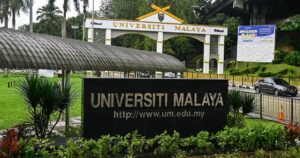
Ilmu, Malaysia’s first locally built large language model could protect the nation’s data and cultural identity from foreign interference, but a cybersecurity expert warns of high costs and the need for stronger safeguards.
M Selvakumar, director of Universiti Sains Malaysia’s cybersecurity research centre, said a homegrown model promotes “sovereign AI,” keeping Malaysia’s data, digital systems, and talent under national control.
“Sovereign AI means Malaysia owns its own AI brain and the data that powers it, so it’s not exposed to outsiders or foreign agendas,” he told FMT.
“So, a Malaysian-made large language mode ensures our data is processed within the country’s borders, reflecting our unique cultural and social values, rather than relying on systems that may carry foreign biases or misunderstand local context.”
Selvakumar added that Ilmu could support sectors like defence, healthcare, and finance, while correcting cultural and linguistic gaps often skewed by global models toward Bahasa Indonesia.
“This difference in available data for training leads to a knowledge gap and potential inaccuracies when these models are used for the Malaysian linguistic and cultural context,” he said.
Ilmu (or Intelek Luhur Malaysia Untukmu) was developed by YTL AI Labs in partnership with Universiti Malaya. It was launched by Prime Minister Anwar Ibrahim during the Asean AI Malaysia Summit last month.
Trained on Malaysian languages and cultural contexts, the AI understands Bahasa Melayu, Manglish, and regional dialects like Kelantanese, across text, voice, and vision.
Consumer access through ILMUchat is now available.
Still, Selvakumar warned of challenges, including data quality and availability for training, cost pressures, and competition with global models like ChatGPT and Google Gemini.
Addressing these concerns, YTL AI Labs executive director Yeoh Pei Lou said Ilmu prioritises curated data over sheer volume to ensure accuracy and relevance.
“We (can) expand our Malay and Malaysian-context data through partnerships with local institutions and communities, rigorous curation of trusted sources, and human-guided synthetic data generation to cover underrepresented topics,” she told FMT.
Yeoh added that Ilmu focuses on “highly contextualised Malaysian data and use cases” to reduce development costs. Its consumer-facing version will be monetised via licensing and subscriptions.
Asked how Ilmu plans to maintain its edge over global language models with larger investments, Yeoh said the strategy is “depth over breadth.”
“We’re not trying to be the ‘largest’ model. We aim to be the most trusted, accurate, and contextually aligned for Malaysia, which is a competitive edge, global models cannot easily replicate at scale,” she said.






